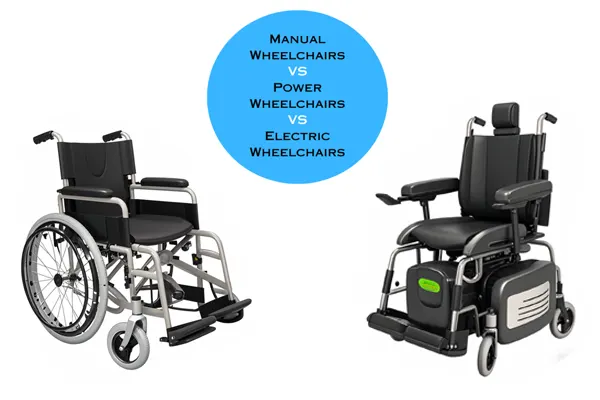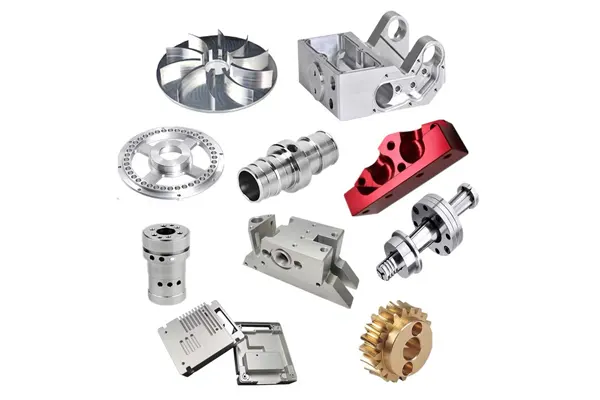Top 10 Materials Used in CNC Machining and Their Properties
CNC (Computer Numerical Control) machining is a versatile manufacturing process that involves the use of computer-controlled machines to create precise and complex parts from a variety of materials. The choice of material is crucial in CNC machining, as it directly impacts the performance, durability, and cost of the final product. In this article, we will explore the top 10 materials used in CNC machining and delve into their unique properties, advantages, and applications.
1. **Aluminum**
### Properties:
– **Lightweight**: Aluminum is known for its low density, making it ideal for applications where weight reduction is critical.
– **Corrosion Resistance**: Aluminum naturally forms a protective oxide layer, which makes it resistant to corrosion.
– **Machinability**: Aluminum is easy to machine, allowing for high-speed cutting and excellent surface finishes.
– **Thermal Conductivity**: It has good thermal conductivity, making it suitable for heat dissipation applications.
### Applications:
– Aerospace components
– Automotive parts
– Consumer electronics
– Heat sinks
2. **Stainless Steel**
### Properties:
– **Strength**: Stainless steel offers high tensile strength and durability.
– **Corrosion Resistance**: The presence of chromium in stainless steel provides excellent resistance to rust and staining.
– **Heat Resistance**: It can withstand high temperatures without losing its structural integrity.
– **Machinability**: While harder to machine than aluminum, stainless steel can still be machined with the right tools and techniques.
### Applications:
– Medical instruments
– Food processing equipment
– Marine components
– Automotive exhaust systems
3. **Brass**
### Properties:
– **Corrosion Resistance**: Brass is highly resistant to corrosion, especially in marine environments.
– **Machinability**: It is one of the easiest materials to machine, offering excellent surface finishes.
– **Electrical Conductivity**: Brass has good electrical conductivity, making it suitable for electrical components.
– **Aesthetic Appeal**: Brass has a gold-like appearance, making it popular for decorative applications.
### Applications:
– Plumbing fittings
– Electrical connectors
– Musical instruments
– Decorative hardware
4. **Copper**
### Properties:
– **Electrical Conductivity**: Copper is one of the best conductors of electricity, making it ideal for electrical applications.
– **Thermal Conductivity**: It also has excellent thermal conductivity, suitable for heat exchangers and cooling systems.
– **Corrosion Resistance**: Copper is resistant to corrosion, especially in water and air.
– **Machinability**: Copper is relatively easy to machine, though it can be gummy and requires sharp tools.
### Applications:
– Electrical wiring
– Heat exchangers
– Plumbing components
– RF shielding
5. **Titanium**
### Properties:
– **Strength-to-Weight Ratio**: Titanium has an exceptional strength-to-weight ratio, making it ideal for high-strength, lightweight applications.
– **Corrosion Resistance**: It is highly resistant to corrosion, even in harsh environments like seawater.
– **Biocompatibility**: Titanium is biocompatible, making it suitable for medical implants.
– **Machinability**: Titanium is challenging to machine due to its hardness and low thermal conductivity, requiring specialized tools and techniques.
### Applications:
– Aerospace components
– Medical implants
– Marine hardware
– High-performance automotive parts
6. **Plastics (e.g., ABS, PEEK, Nylon)**
### Properties:
– **Lightweight**: Plastics are significantly lighter than metals, making them ideal for weight-sensitive applications.
– **Corrosion Resistance**: Plastics are inherently resistant to corrosion and chemicals.
– **Machinability**: Many plastics are easy to machine, though some high-performance plastics like PEEK require specialized tools.
– **Electrical Insulation**: Plastics are excellent electrical insulators, making them suitable for electrical components.
### Applications:
– Consumer electronics
– Medical devices
– Automotive interiors
– Insulating components
7. **Carbon Steel**
### Properties:
– **Strength**: Carbon steel offers high strength and durability, making it suitable for heavy-duty applications.
– **Machinability**: It is relatively easy to machine, though harder grades may require more effort.
– **Cost-Effective**: Carbon steel is generally more affordable than stainless steel and other alloys.
– **Weldability**: Carbon steel is easy to weld, making it versatile for various fabrication processes.
### Applications:
– Structural components
– Automotive parts
– Tools and dies
– Machinery components
8. **Tool Steel**
### Properties:
– **Hardness**: Tool steel is known for its high hardness and wear resistance, making it ideal for cutting and shaping tools.
– **Heat Resistance**: It can withstand high temperatures without losing its hardness.
– **Machinability**: Tool steel is challenging to machine due to its hardness, requiring specialized tools and techniques.
– **Durability**: It offers excellent durability and longevity, even under extreme conditions.
### Applications:
– Cutting tools
– Dies and molds
– Punches and stamps
– High-stress components
9. **Inconel**
### Properties:
– **Heat Resistance**: Inconel is a nickel-chromium alloy that can withstand extreme temperatures and oxidation.
– **Corrosion Resistance**: It offers excellent resistance to corrosion and chemical attack.
– **Strength**: Inconel retains its strength at high temperatures, making it suitable for high-stress applications.
– **Machinability**: Inconel is difficult to machine due to its hardness and work-hardening properties, requiring specialized tools and techniques.
### Applications:
– Aerospace components
– Gas turbine engines
– Chemical processing equipment
– Nuclear reactors
10. **Magnesium**
### Properties:
– **Lightweight**: Magnesium is one of the lightest structural metals, making it ideal for weight-sensitive applications.
– **Machinability**: It is easy to machine, offering good surface finishes and high-speed cutting capabilities.
– **Strength**: Magnesium has a good strength-to-weight ratio, though it is not as strong as aluminum or titanium.
– **Corrosion Resistance**: Magnesium is prone to corrosion, so it often requires protective coatings.
### Applications:
– Aerospace components
– Automotive parts
– Consumer electronics
– Sports equipment
Conclusion
Choosing the right material for CNC machining is essential to ensure the performance, durability, and cost-effectiveness of the final product. Each material has its unique properties and advantages, making it suitable for specific applications. Whether you need a lightweight material like aluminum or a high-strength alloy like titanium, understanding the properties of these materials will help you make an informed decision for your CNC machining project.
By selecting the appropriate material and leveraging the capabilities of CNC machining, you can create high-quality, precision-engineered components that meet the demands of your industry.
CONTACT INFORMATION
- Xinyi.ouyang@ihktech.com
- +86 15323384821
- 910-A03,9th Floor, Building 9 (Building 8 #), No.6, Nanjiang Second Road, Zhujiang Street, Nansha District, Guangzhou
You May Like
Have Anything To Ask Us?
Please fill in the detailed information in the form, and we will contact you as soon as possible!





